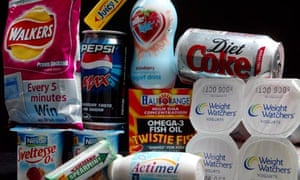Once again, many people are asking us what type of sunscreen is healthier and safer to use. Here are the answers.
Without sun, we would not exist in this planet and we will not survive long either, even if we maintain the planet’s temperature. Sunlight is essential for our hormonal, physical and emotional function. Interestingly enough, lack of function is these areas are the cause of SUBLUXATION – simply saying-imbalance!
Natural sunlight’s potential to harm you has really been blown out of proportion. This is thanks to many doctors, health officials, advertisements, beauty experts, corporations, and well-meaning friends. They basically tell you that you need to stay out of the sun because the sun will kill you. This simply isn’t true.
The main chemical used in sunscreens to filter out ultraviolet-B light is octyl-methoxycinnamate, OMC for short. OMC was found to kill mouse cells even at low doses. Plus, it was also shown to be particularly toxic when exposed to sunshine. And guess what? OMC is present in 90 percent of sunscreen brands!
But that’s not the half of it. A common ultraviolet-A filter, butyl methoxydibenzoylmethane, has also demonstrated toxic properties.
Furthermore, several studies show that the chemicals commonly used in sunscreens are absorbed through the skin and end up circulating in your blood stream. Not good. So…
Toss your sunscreen in the trash if it contains any of these chemicals I consider to be potentially harmful: Para amino benzoic acid… Octyl salicyclate… Avobenzone… Oxybenzone… Cinoxate… Padimate O… Dioxybenzone… Phenylbenzimidazole… Homosalate… Sulisobenzone… Menthyl anthranilate… Trolamine salicyclate… Octocrylene…
Importance of SUNLIGHT and what to use: Now get this:
Vitamin D; it’s not just a vitamin; it’s one of the most important hormones in the body produced by your skin under sunlight. Safe sunlight exposure has also been shown to protect against as many as sixteen different types of cancer, including breast, colon, endometrial, esophageal, ovarian, bladder, gallbladder, gastric, pancreatic, prostate, rectal, and renal cancers, as well as non-Hodgkin’s lymphoma.
Your risk of getting melanoma may increase in relationship to sunburn frequency and severity. Limiting sun exposure, wearing protective clothing, and using a 100% all-natural, non chemical sunscreen can reduce the risks of skin cancer and other harmful effects of the sun.
Studies revealed that people who spend more time outdoors without getting sunburn, actually decrease their risk of developing melanoma.
Natural Sunscreens often include following ingredients:
Sunflower oil: Sunflower oil is a superior moisturizer. In addition, it also contains vitamins A, D and E. And this excellent ingredient is often used to moisturize dry, weathered, and aged skin.
Lecithin: Lecithin is found in the membranes of plant cells (soy.) It is widely used in cosmetics as an emollient and water-binding agent.
Coconut oil: Coconut oil has been used by the islanders for hundreds of years to moisturize their skin. And it moisturized their skin while they attained a glowing, dark tan. Even better, if you have skin sensitivities, it is likely to be mild and gentle on your skin.
Glycerine: Used as an emollient, glycerine improves your skin’s natural moisture by attracting just the right amount of water to maintain your skin’s homeostasis. Furthermore, research proves the presence of glycerine in the intercellular layer.
Jojoba oil: Jojoba oil is a non-fragrant natural emollient that serves up superior moisturizing and skin conditioning properties.
Tocopheryl acetate (vitamin E): Vitamin E also acts as a natural preservative.
Shea butter: Shea butter is a natural plant lipid used as both a thickener and an emulsifier. What’s more, it also has effective moisturizing properties.
Eucalyptus oil: Eucalyptus oil is an essential oil. And when it’s mixed with other oils, it is more easily absorbed by your skin. Best of all, it assists other oils to be absorbed in your skin as well. This obviously supports the moisturizing process.
Bottom line, Natural Sunscreen’s perfect blend of ingredients results in a pleasant-smelling sunscreen lotion without any chemical fragrances or dangerous artificial chemicals.
Be Blessed!
1. Bain, C. et al. Diet and melanoma: An exploratory case-control study. Ann. Epidemiology. 1993 May; 3(3): 235-238.
2. PNAS. June 19, 2001 vol. 98 no. 13: 7510-7515.







Thank you doctor Dmitri for such great information. I didn’t know about most of the practical and healthful and helpful suggestion.
Be blessed,
Maria
Thank you Dr. Demetri for sharing these well needed information thanks again for exhibiting Christ love.God continue to bless you and family have a great summer.